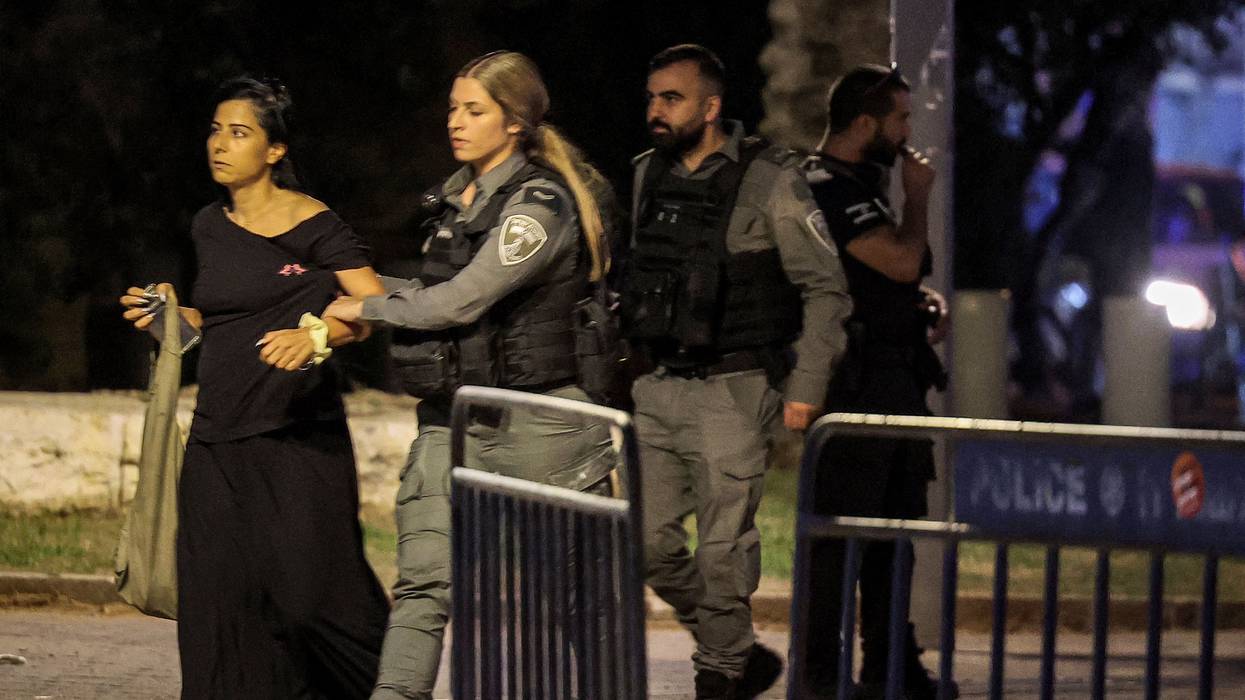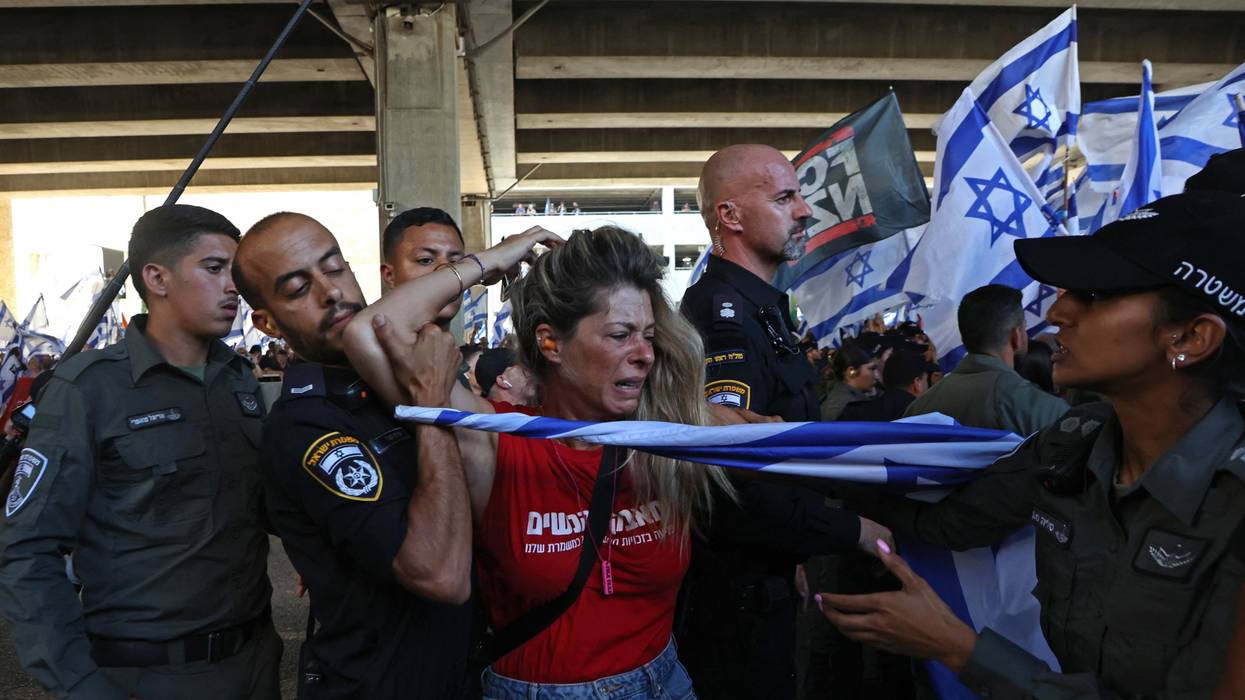All Likud Ministers Urge Netanyahu to Annex Entire West Bank This Month
The 15 ministers said that Israel's "strategic partnership, backing, and support of the U.S. and President Donald Trump" make this a "propitious time" to formally steal most of Palestine.
All 15 Israeli government ministers representing Likud on Wednesday urged Prime Minister Benjamin Netanyahu—who leads the right-wing party—to annex the entire West Bank of Palestine before the end of the Knesset's summer session on July 27, citing support from U.S. President Donald Trump.
The ministers, along with Likud Knesset Speaker Amir Ohana, sent a letter to Netanyahu asserting that "this is the time to approve in government a decision to apply sovereignty" over Judea and Samaria, the biblical name for the West Bank, which includes East Jerusalem.
"Following the state of Israel's historic achievements in the face of Iran's Axis of Evil and its sympathizers, the task must be completed and the existential threat from within must be eliminated, to prevent another massacre in the heart of the country," the letter argues, referring to the recent 12-day war between Israel and Iran, in which the United States intervened by bombing Iranian nuclear sites.
"The strategic partnership, backing, and support of the U.S. and President Donald Trump have made it a propitious time to move forward with it now, and ensure Israel's security for generations," the ministers said. "The October 7 massacre proved that the doctrine of settlement blocs and the establishment of a Palestinian state in the remaining territory is an existential danger to Israel. It's time for sovereignty."
Asked during a Wednesday press briefing for reaction on the ministers' call to annex the West Bank, U.S. State Department spokesperson Tammy Bruce replied, "I think that is specifically something that the White House would be able to answer for you, but I also know that our position regarding Israel... is that we stand with Israel and its decisions and how it views its own internal security."
Netanyahu is set to travel to Washington, D.C. next week to meet with Trump, despite an International Criminal Court warrant for the Israeli leader's arrest for alleged crimes against humanity and war crimes in Gaza including murder and forced starvation.
I asked State Dept spox Bruce about Israeli minister’s call to annex the occupied West Bank — she referred me to the WH, saying the US "stand with Israel and its decisions.”
I followed up asking if the two-state solution remains US policy, she said Trump is “realistic… Gaza is… pic.twitter.com/GdtN0tTDdy
— Rabia İclal Turan (@iclalturan) July 2, 2025
Palestinians and their defenders warned during the 2024 U.S. presidential election cycle that a victoriousTrump might lift the few guardrails the Biden administration had placed on Israel and unleash Netanyahu to seize all of Palestine. The goal of Israel's far right is expansion of Israeli territory to include what proponents call "Greater Israel," which is based on biblical boundaries that stretched from Africa to Turkey to Mesopotamia.
Netanyahu has repeatedly displayed maps showing the Middle East without Palestine, all of whose territory is shown as part of Israel. However, annexation had previously been most closely associated with far-right figures outside Likud like Finance Minister Bezalel Smotrich of the Religious Zionist Party and National Security Minister Itamar Ben-Gvir of Jewish Power.
Following Trump's reelection last November, Smotrich said that "the year 2025 will be, with God's help, the year of sovereignty in Judea and Samaria."
"The only way to remove the threat of a Palestinian state from the agenda is to apply Israeli sovereignty over the settlements in Judea and Samaria," he continued. "I have no doubt that President Trump, who showed courage and determination in his decisions during his first term, will support the state of Israel in this move."
Smotrich praised Wednesday's letter, declaring he'll be ready to impose Israeli sovereignty over the West Bank as soon as Netanyahu "gives the order," according to The Times of Israel.
Israeli Justice Minister Yariv Levin, one of the Likud members who signed the letter, said Wednesday: "I think that this period, beyond the current issues, is a time of historic opportunity that we must not miss. The time for sovereignty has come, the time to apply sovereignty. My position on this matter is firm, it is clear."
Israel occupied the West Bank, along with the Gaza Strip, Egypt's Sinai Peninsula, and the Golan Heights in Syria during the Six-Day War in 1967. Israel eventually withdrew from the Sinai but unilaterally annexed East Jerusalem in 1980 while keeping control of the rest of the West Bank and Golan Heights. Although Israel dismantled settlements and withdrew troops from Gaza in 2005, it is still considered an occupier under international law and its conduct during the current invasion, bombardment, and siege of the coastal enclave is the subject of an International Court of Justice (ICJ) genocide case.
Since 1967, Israel has steadily seized more and more Palestinian land in the West Bank while building and expanding Jewish-only settlements there. Settlement population has increased exponentially from around 1,500 colonists in 1970 to roughly 140,000 at the time of the Oslo Accords in 1993—under which Israel agreed to halt new settlement activity—to around 770,000 today. Settlers often attack Palestinians and their property, including in deadly pogroms, in order to terrorize them into leaving so their land can be stolen. In recent weeks, Israeli settlers have attacked Israel Defense Forces soldiers they view as standing in their way and Palestinians alike in the West Bank.
From 1978 until new guidelines were announced by then-Secretary of State Mike Pompeo during the first Trump administration, the U.S. State Department also considered Israel's settlements to be "inconsistent with international law."
In July 2024, the ICJ found Israel's occupation of Palestine to be an illegal form of apartheid that must be ended as soon as possible. The tribunal also said that Israeli settler colonization of the West Bank amounts to annexation, also a crime under international law. Article 49 of the Fourth Geneva Convention states that an "occupying power shall not deport or transfer parts of its own civilian population into the territory it occupies."
As the world's attention is focused on Gaza, Israeli soldiers and settlers have killed upward of 950 Palestinians in the West Bank and East Jerusalem since October 2023, including at least 200 children, while wounding thousands more, according to the United Nations Office for the Coordination of Humanitarian Affairs.


